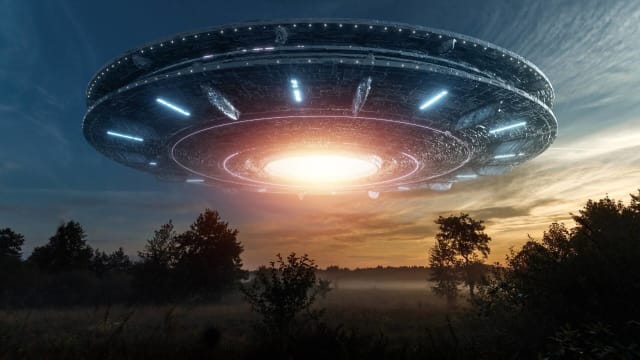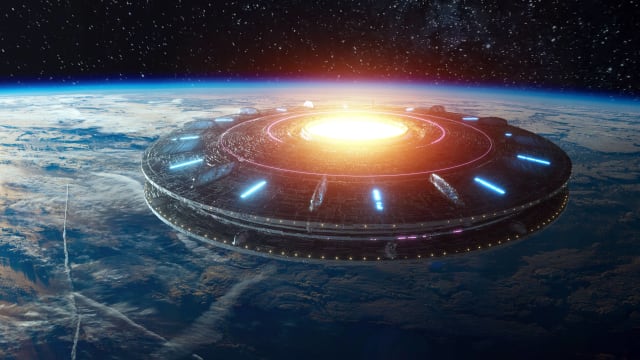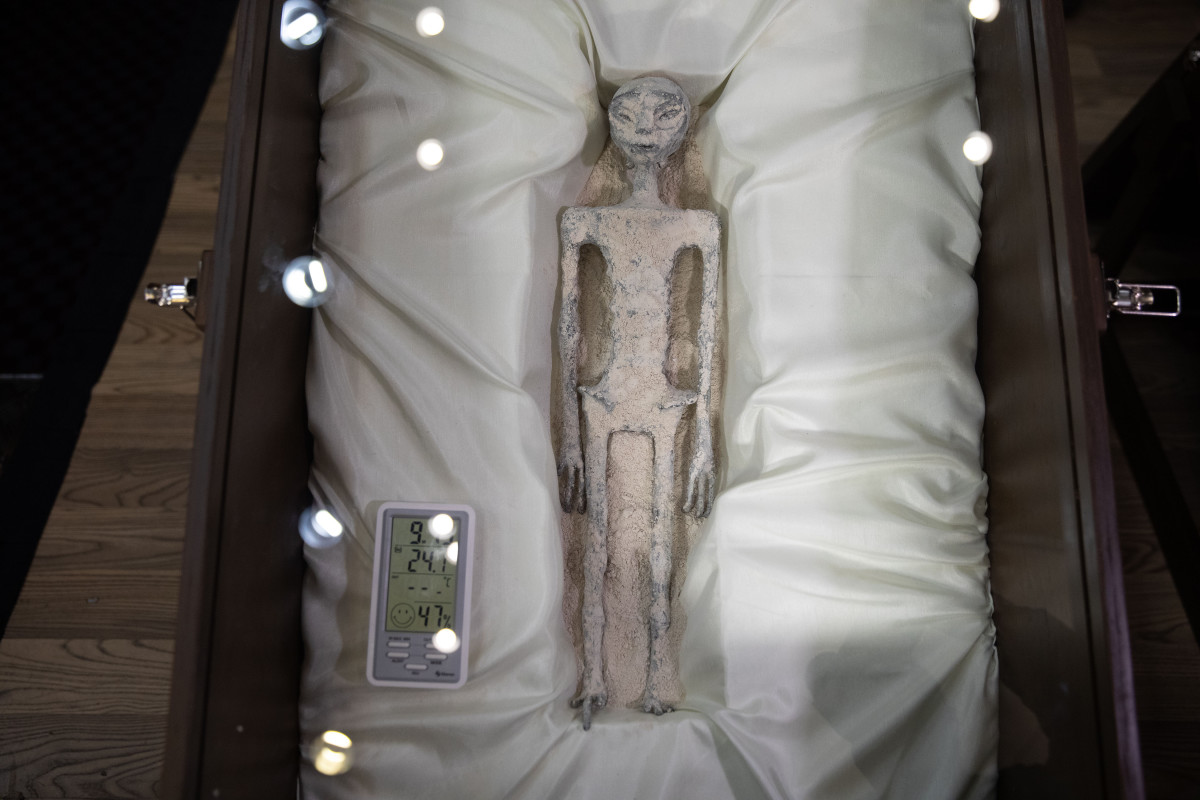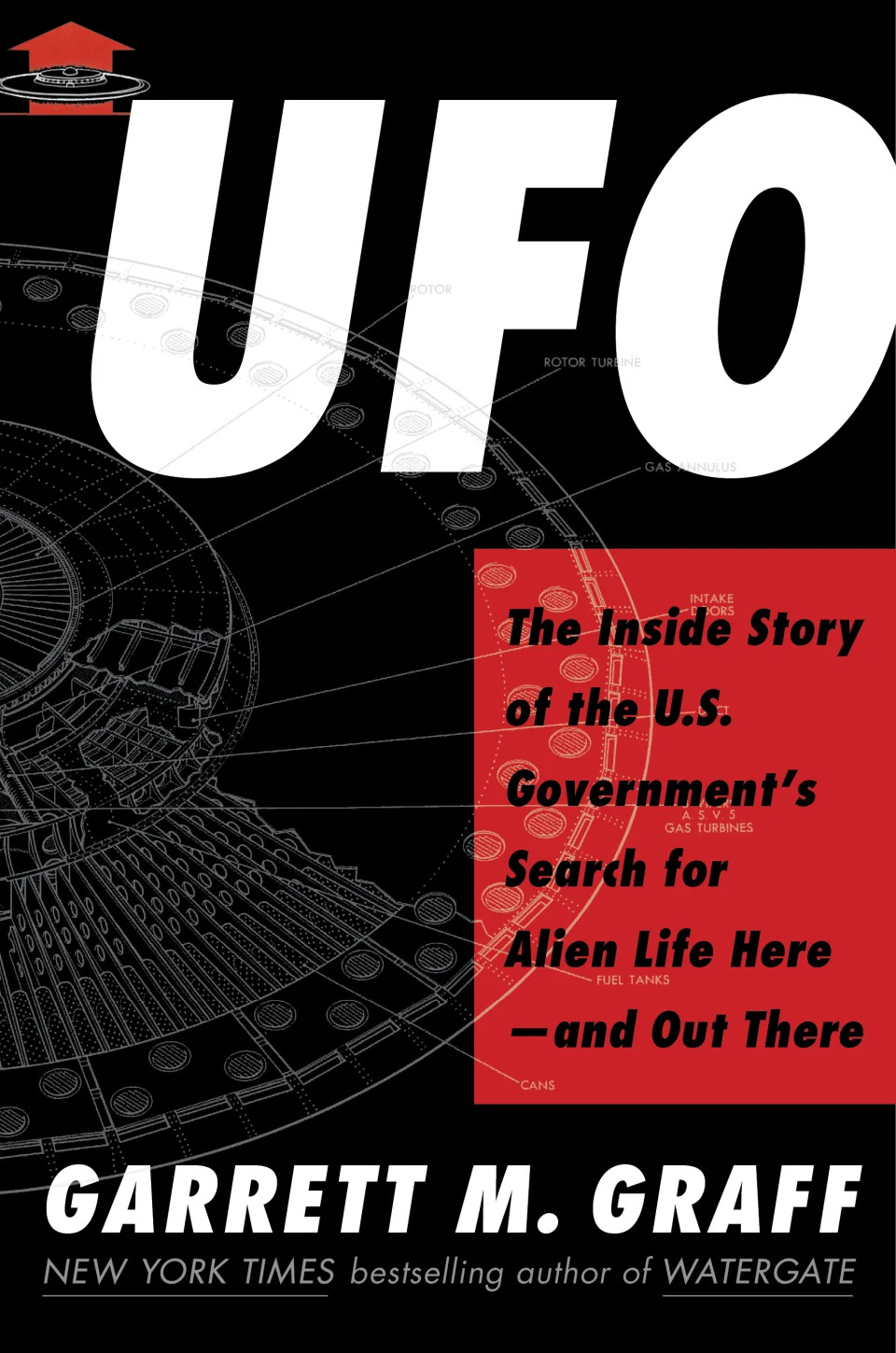
Top government official has an answer to the question of alien existenc
The head of the Pentagon's AARO answered the question: "Are aliens real?"
Ian Krietzberg
Nov 13, 2023 3:05 PM EST
The past few months have seen the release of reports on UFOs from both NASA and the Pentagon, in addition to whistleblower testimony before a U.S. Congressional committee in July. The gist of the situation, according to the whistleblowers, is that UFOs are real, they are numerous and they represent a threat to national security.
One of these whistleblowers, David Grusch, a former Air Force pilot and U.S. intelligence official, went even further, accusing the U.S. government of being in possession of crashed craft, complete with the "non-human biologic" bodies of their pilots.
Another whistleblower, former Navy pilot Ryan Graves, urged the government to take UFOs more seriously, saying: "If everyone could see the sensory and video data I witnessed, our national conversation would change."

Why one U.S. official hopes to discover evidence of alien activity
In the midst of these claims, the Pentagon's All-domain Anomaly Resolution Office (AARO) has maintained that there is "no credible evidence thus far of extraterrestrial activity, off-world technology or objects that defy the known laws of physics."
AARO said in an October report that the bulk of UFO sightings it is currently studying would likely "resolve to ordinary phenomena" with an increase in the quality of data, an area that both AARO and NASA are working on enhancing.
Still, the head of the office, Dr. Sean Kirkpatrick, recently told Politico that discovering evidence of alien activity would be better than the alternative.
"The best thing that could come out of this job is to prove that there are aliens," Kirkpatrick said. "If we don’t prove it’s aliens, then what we’re finding is evidence of other people doing stuff in our backyard. And that’s not good.”
Kirkpatrick announced last week that, after 18 months in the position, he will be leaving AARO by the end of the year.

Scientists make an eye-opening announcement about recent alien evidence
In answer to the question "Are aliens real?" Kirkpatrick said that the level of the public conversation around a possible alien reality needs to change.
From a scientific perspective, he said, the community would agree that it is "statistically invalid to believe that there is not life out in the universe, as vast as the universe is."
"The probability, however, that that life is intelligent and that it has found Earth and that it has come to Earth and that it has repeatedly crashed in the United States is not very probable," he added.
Kirkpatrick said that the process of looking for signs of life in the wider universe begins very objectively, with sound scientific discourse. As that search moves into the solar system, the conversation, he said, turns into one of science fiction.
"And then as you get even closer to Earth, and you cross into Earth’s atmosphere, it becomes conspiracy theory," he said.

The bodies of two allegedly non-human mummies were shown during a Mexican Congressional hearing on UFOs in September.
Anadolu Agency/Getty Images
The public conversation, Kirkpatrick said, needs to move away from unfounded claims of government conspiracies and cover-ups and toward a place of scientific proof and scientific benchmarks.
"You have to have a hypothesis," he said. "You have to have measurables with that hypothesis, and then your data has to meet it. And you have to lay that out in a peer-reviewed journal so that you have something to pin it against."
Kirkpatrick said his office has investigated more than 30 whistleblower claims so far. But he noted that Grusch has "refused" to speak with AARO.
"If he has evidence," Kirkpatrick said, "I need to know what that is."
That UFO Whistleblower Apparently Refused Pentagon Interviews
Noor Al-Sibai
Mon, November 13, 2023

Out of this World
That outlandish UFO whistleblower never came in to talk to the Pentagon's UFO office, the department's outgoing chief is claiming.
In a new interview with Politico, Sean Kirkpatrick, the outgoing head of the Pentagon's All-domain Anomaly Resolution Office (AARO), said that try as he might, he hasn't been able to talk to David Grusch, an Air Force veteran and former military intelligence official who has some pretty wild allegations about the government's knowledge of aliens.
"Grusch is a unique instance," Kirkpatrick said, "in that he has refused to come and share any of that information."
Over the summer, the whistleblower made headlines when he told Congress during its unprecedented UFO hearings that the United States has conducted a massive, decades-long coverup of its knowledge of extraterrestrial life and technology. In his testimony, Grusch went so far as to claim that the US government is in possession of said alien tech and has even reverse-engineered it for its own ends — which sounds more like something out of an "X-Files" episode from the 1990s than a front-page newspaper story.
He Said, He Said
Unsurprisingly, Kirkpatrick and other experts, including regretful space traveler William Shatner, shredded the whistleblower's sci-fi-esque claims — though in a hearing just before his resignation, the ex-AARO head did admit that Grusch's claims may contain some "events that really happened."
In spite of what sounds like significant interest, Kirkpatrick said that the AARO under his leadership was ultimately unable to get Grusch in for interviews about his claims.
"We still can’t get him to come in," the outgoing AARO director said. "We’re about to put out Volume One of the historical review, which I believe captures most all of the people that he’s spoken with, but I can’t say that 100 percent because I can’t hear what he thinks he has."
Grusch, for his part, told NewsNation before Kirkpatrick's resignation that the AARO had not reached out to him and was lying about their efforts.
"I have zero emails or calls from them," Grusch said. "That is a lie."
All the same, it seems like the whistleblower may be the one that got away from Kirkpatrick.
"If [Grusch] has evidence," the defense intelligence veteran told Politico, "I need to know what that is."
It looks like "Dr. K," as he was known to his team at the Department of Defense, won't be the one to get that information out of Grusch — and given the whistleblower's own stubborn posturing, it's unclear if anyone at the Pentagon will be able to, either.
More on UFOs: One in Five Professors Say They’ve Had a UFO Encounter, Survey Finds
Book Review: 'UFO' is a detailed look at the history of the search for the truth that's out there
ANDREW DeMILLO
Mon, November 13, 2023

This cover image released by Avid Reader Press shows "UFO: The Inside Story of the U.S. Government's Search for Alien Life Here - and Out There" by Garrett M. Graff.
(Avid Reader via AP)
The truth may be out there, but making sense out of it isn't easy.
Discussion about unidentified flying objects has moved over the years from fodder for science fiction movies or jokes to the subject of congressional hearings. Garrett M. Graff's “UFO: The Inside Story of the U.S. Government's Search for Alien Life Here — and Out There” is the perfect guide for readers interested in learning how that discussion has evolved.
Graff offers an authoritative and objective look at the history of UFO sightings and research into the possibility of extraterrestrial life over the past 75 years.
It's a narrative as compelling as Graff's other works, including his history of Watergate, and requires the same skill that he's demonstrated in navigating government documents.
The deeply researched history traces the ways the government has struggled to wrap its arms around the questions raised by UFOs — or, as they're now known, “unidentified aerial phenomena” — sightings going back to the 1940s.
“It's not that the government knows something it doesn't want to tell us,” Graff writes at the outset of the book. “It's that the government is uncomfortable telling us it doesn't know anything at all.”
Graff profiles a sprawling cast of characters who have played a role in the search for UFOs and alien life over the years, from amateur ufologists to famed astronomer Carl Sagan to Blink-182 frontman Tom DeLonge.
They're all battling hoaxes and public skepticism and trying to overcome the lingering question first posed by physicist Enrico Fermi: if extraterrestrial life is prevalent, why don't we see more of it?
Graff highlights the advances in science that are made over the years in trying to answer that question, but also in showing just how vast and unknown the universe is.
The book shows how attitudes toward UFOs have changed over the years, not just by scientists and the government but also in popular culture. Those shifting attitudes have led to more openness about discussing sightings, and the national security implications of not knowing what they could be.
Graff is unlikely to convert firm skeptics, but he may at least convince them to keep an open mind the next time they read about UFOs or UAPs.
___
No comments:
Post a Comment